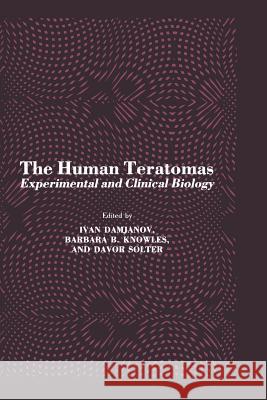The Human Teratomas: Experimental and Clinical Biology » książka
The Human Teratomas: Experimental and Clinical Biology
ISBN-13: 9781461256304 / Angielski / Miękka / 2011 / 358 str.
Human teratocarcinoma has long held a fascination to the pathologist be cause of the diversity of the seemingly benign differentiated tissues asso ciated with the tumor. An understanding of this diversity came with the demonstration of the pluripotent nature of the embryonal carcinoma cell, the stem cell of the tumor, in experimental animals. Single cell clones of murine embryonal carcinomas were derived and the resultant cell lines injected into immunosuppressed hosts, where the embryonal carcinoma stem cell itself gave rise to the wealth of differentiated tissues seen in teratocarcinomas. It was also shown that teratocarcinomas could be pro duced experimentally by transplantation of staged early mouse embryo to extrauterine sites; subsequent experiments suggested that the embryonal carcinoma stem cell was, in fact, comparable to a normal cell of the em bryonic ectoderm. Many elegant experiments have since been built on this early work; murine embryonal carcinoma cells are providing the ex perimental material for a first biochemical evaluation of the earliest dif ferentiation events in mammalian embryogenesis. In this volume, we relate the beginnings of experimental research on human teratoma. The human embryonal carcinoma cells have been char acterized and established in vitro, providing an experimental model to study the unique biology of these cells. Monoclonal antibodies, estab lished from work with these in vitro cultures, provide cell surface probes that define populations of embryonal cells and their derivatives in tumor sections.











